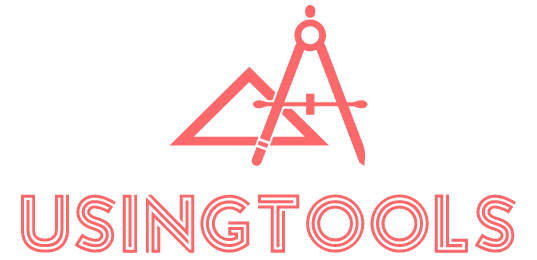Keyword research is one of the most important aspects of search engine optimization (SEO). Finding the right keywords and phrases that your target audience is searching for can make or break your SEO strategy. By researching and selecting the keywords that are most relevant to your business, you can increase your chances of ranking higher in search engines and driving more qualified traffic to your site.
In this article, we will provide an overview of keyword research and explain why it is so critical for SEO. We will discuss the benefits of using keyword research tools, the different types of tools available, and provide recommendations for the top free and paid options. We will also cover best practices for conducting keyword research, common mistakes to avoid, and tips for researching keywords specific to your industry. With the right keyword research strategy, you can gain valuable insights into your audience’s search behavior and create content optimized to rank for your most important keywords. Understanding proper keyword research is key for any effective SEO campaign.
Table of Contents
What are Keyword Research Tools?
Keyword research tools are software platforms and online resources that help users research, analyze, and optimize keywords for SEO and content marketing. They provide data and insights to help identify high-volume, low-competition keyword opportunities that can help pages and content rank higher in search engines.
Keyword research is a critical first step in any SEO or content strategy. It involves researching words and phrases that users search for in search engines when looking for information on a particular topic. The goal is to identify keywords that drive a high amount of relevant search traffic to a website, while also having low competition from other sites targeting those terms.
These tools allow users to input seed keywords and see related keyword suggestions along with important metrics like monthly search volume, cost-per-click, and competition data. This enables users to identify the best keyword targets to focus on that align with their business goals and have the highest potential to bring in quality search traffic.
Keyword research with these tools provides the foundation for optimizing pages and content for search engines. By targeting keywords users are actively searching for, websites can rank higher and earn more visibility in search results. The data from keyword research also informs content creation strategy by revealing high-potential topics and search demand. Overall, keyword tools are essential for executing effective SEO and content marketing.
Benefits of Using Keyword Research Tools
Keyword research tools provide invaluable data to inform content strategy and search engine optimization. Here are some of the key benefits of using these tools:
Helps Find High-Traffic, Low-Competition Keywords
One of the main advantages of keyword research is identifying high-traffic keywords that are relevant to your content but have relatively low competition. Rather than targeting competitive keywords where you will struggle to rank, you can uncover “long-tail” keywords that are more specific and easier to rank for. This allows you to attract more targeted organic traffic.
Informs Content Strategy and Optimization
Keyword data gives you insight into what topics and questions your target audience is searching for. This enables you to create content that aligns with user intent and search behavior. You can optimize pages and content around valuable keyword opportunities.
Provides Keyword Data and Metrics
Keyword research tools track and report on valuable keyword metrics like monthly search volume, competition levels, suggested bid prices, and more. This data can inform decisions around prioritizing keywords, content development, and SEO optimization. It also allows you to identify trends and track keyword performance over time.
Enables Topic Research
Analyzing keyword data can reveal popular topics and categories that may be relevant to cover. Clustering keywords by topic can help content creators brainstorm ideas and flesh out underserved subjects. This ensures your content targets high-demand topics.
Informs Paid Search Campaigns
For pay-per-click (PPC) campaigns like Google Ads, keyword research is crucial for informing keyword targeting, bids, and budget allocation. Keyword data enables advertisers to optimize paid search campaigns.
In summary, comprehensive keyword research provides the insights needed to create high-value content and optimize for organic and paid search. Keyword tools are invaluable for researching target keywords, gaining keyword insights, and analyzing metrics.
Types of Keyword Research Tools
There are two main types of keyword research tools – free tools and paid tools. Both have their advantages and limitations.
Free Keyword Research Tools
Free keyword research tools provide basic keyword data and analysis. They are a good starting point for beginners doing keyword research on a tight budget. Some popular free tools include:
- Google Keyword Planner – Provides keyword volumes and forecasts based on Google search data. Limited to only 100 keyword ideas without a Google Ads account.
- Ubersuggest – Generates keyword ideas based on a seed keyword. Provides keyword difficulty scores and monthly searches. Limited in depth of data.
- Answer the Public – Creates keyword ideas based on question formats. Good for question and long-tail keyword inspiration. Does not provide search volume data.
- KeywordTool.io – Offers keyword ideas, search volumes, trends, and difficulty scores. Limited number of results without paid subscription.
While free tools offer a taste of keyword research, they lack some important data only available in paid tools. They are best for initial research before investing in paid tools.
Paid Keyword Research Tools
Paid keyword tools provide more extensive data and capabilities to dive deeper into research. They are recommended for serious keyword research needs. Some popular paid tools include:
- Ahrefs – Robust keyword research with search volume, CPC data, keyword difficulty, and full SERP analysis. Costs $99-$999/month based on features.
- SEMrush – In-depth keyword research paired with competitive analysis features. Subscription plans range from $99-$399/month.
- Moz Keyword Explorer – Detailed keyword data including search volume, CPC, and difficulty scores. Plans from $99-$599/month.
- KWFinder – Affordable keyword research tool with good volume of data. Plans from $39-$79/month.
Paid tools provide larger keyword databases, more accurate metrics, historical trends, and competitive intelligence not found in free tools. They enable comprehensive research for SEO campaigns. Most offer trial periods to test them out.
In addition to individual tools, all-in-one SEO suites like Ahrefs and SEMrush provide robust keyword research capabilities along with other SEO and marketing features. The breadth of data can give a powerful competitive advantage for serious SEO practitioners.
Top Free Keyword Research Tools
Keyword research is crucial for SEO, PPC, and overall content strategy. Thankfully, there are some excellent free tools available. Here are some of the top options:
Google Keyword Planner
Google Keyword Planner is one of the most popular free keyword research tools. It leverages Google’s extensive search data to provide keyword suggestions and traffic estimates.
To use it, you first need a Google Ads account. Once logged in, you can enter seed keywords to generate ideas. Filter options allow you to refine by location, language, device, and more. The tool also provides monthly search volume data.
While powerful, it does have some limitations. Search volume estimates are ranges rather than exact figures. And Google limits how many suggestions you can export. Still, it’s an essential starting point for research.
UberSuggest
UberSuggest is a free tool from Neil Patel that generates keyword ideas based on a root keyword. It pulls suggestions from Google’s autocomplete API.
Simply enter a root keyword and UberSuggest will instantly provide a long list of related keywords. It also shows monthly search volume, cost-per-click, and competition data. The tool is easy to use and provides ample suggestions to spur ideas.
Downsides are that search volume is estimated. And competition metrics aren’t always fully accurate. But overall it’s a handy idea generator.
Answer the Public
Answer the Public takes a unique approach to keyword research. It generates questions related to your root keyword to uncover “question keywords.”
The tool scans autocomplete data to find commonly asked questions. This reveals what people want to know about a given topic. The keywords it provides are in question format, which is helpful for creating FAQs and comparison content.
While light on metrics, it provides unique question-based keyword ideas you may not find elsewhere. The tool works for both SEO and PPC research.
KeywordTool.io
KeywordTool.io aggregates data from multiple sources to provide keyword suggestions and metrics. It pulls data from Google, YouTube, Bing, Amazon, and App Store.
Simply enter a seed keyword to see related keywords and phrases. You can filter suggestions by location and language as well. The tool provides search volume, CPC, and competition data. While not always fully accurate, it gives a helpful general idea.
The tool is easy to use and provides ample suggestions. It’s a handy starting point for research before diving deeper. The free version limits you to 750 searches per month.
Top Paid Keyword Research Tools
Paid keyword research tools provide more in-depth data and analysis compared to free versions. The top paid options include:
Ahrefs
Ahrefs offers robust keyword research with volume and difficulty metrics. It analyzes backlinks and website authority to identify the best keywords to target. The Keyword Explorer provides keyword ideas based on a domain, URL, or keyword seed. Users can filter keywords by volume, CPC, and difficulty to refine options. Ahrefs also reveals questions people are asking about a topic for long-tail keyword ideas.
SEMrush
SEMrush is a leading paid tool with over 100 million keywords in its database. The Keyword Magic Tool generates numerous keyword suggestions and analyzes the top 10 results for each one. This reveals which keywords are dominated by competitors versus which ones have opportunity. SEMrush also identifies questions people are asking around keywords for long-tail inspiration. Users can filter keyword ideas by location, device, and more.
Moz
Moz’s Keyword Explorer is ideal for researching and grouping keywords. It offers clickstream data to reveal the journeys users take to find keywords, which helps optimize content. Moz provides historical trend graphs for keyword volume and difficulty scores to identify changes over time. Useful features include search query reports to see the words people add to keywords and filters like locale and device.
KWFinder
KWFinder makes it easy to generate hundreds of long-tail variations for a root keyword. It leverages Google Autocomplete data to find high-potential keywords people are searching for. KWFinder provides search volume estimates, cost-per-click data, and difficulty scores for each suggestion. The Contextual Keyword Generator analyzes a URL to automatically find relevant keywords. Users can filter and compare keywords to identify the best options.
These paid tools provide robust data and analysis to take the guesswork out of keyword research. Their powerful features help users identify low competition, high-volume keywords to target in their content for better rankings and visibility.
How to Use Keyword Research Tools
Keyword research is a crucial first step in any content marketing or SEO strategy. By researching and analyzing keywords, you can gain valuable insights into your target audience’s interests, questions, search behavior, and more. Here is an overview of the keyword research process and tips for getting the most out of your research:
Keyword Research Process Overview
- Brainstorm potential keywords and phrases related to your business, products, services, and target audience. Think about words they may use when searching.
- Generate ideas using keyword research tools. Look at suggested keywords, related terms, and search volume data.
- Organize keywords into groups or categories. For example, group keywords by topic, intent (informational, transactional), difficulty, etc.
- Analyze and refine your list. Look at search volume, competition, relevancy to your goals, and other metrics. Remove or add keywords as needed.
- Prioritize keywords into high, medium, and low priority buckets. Focus on high-priority keywords first.
- Perform searches for each keyword to evaluate the top-ranking content. Identify optimization opportunities.
- Track keyword rankings over time to measure progress. Adjust your priorities as needed.
Tips for Keyword Research
- Use multiple keyword tools to get a complete picture. Each tool has unique data.
- Look beyond exact match keywords. Also research relevant variations and long-tail keywords.
- Analyze the competition for each keyword. Can you realistically rank for it?
- Prioritize keywords that align with your target audience and business goals. Volume alone shouldn’t dictate priorities.
- Revisit and refine your keyword list regularly as search behavior changes.
- Use keyword research to inform content topics, titles, meta descriptions, URLs, and more.
- Think about user intent and search behavior. What words do users type for each search goal?
- Leverage keyword research to identify optimization opportunities on existing content.
- Use keywords in natural sounding ways throughout your content. Don’t over-optimize.
Thorough keyword research takes time, but it provides the foundation for an effective SEO and content strategy tailored to your audience. Follow these tips and steps to maximize the value of your research.
Keyword Research for Specific Industries
Keyword research can vary greatly depending on the industry and type of business. Here are some tips for researching keywords for specific industries:
Ecommerce
- Look at keywords that contain product names, categories, brands, features, styles, etc.
- Analyze competitor product pages and their metadata to find keyword opportunities.
- Use keyword grouping to find low competition long-tail versions of popular product keywords.
- Research keywords related to stages of the buyer journey like “compare”, “review”, “coupon”, etc.
Local Businesses
- Target keywords with your city/region name and relevant terms like “pizza Seattle”, “plumber Austin”.
- Identify keywords that include street names, neighborhoods, landmarks, etc.
- Use Google Autocomplete to find local search queries.
- Research keywords your competitors rank for by analyzing their GMB profiles.
B2B Companies
- Identify keywords around pain points your products/services can solve.
- Look for keywords containing industry terms, job titles, technologies, etc.
- Analyze keywords competitors rank for on branded and non-branded terms.
- Research long-tail keyword opportunities using broad industry terms.
Law Firms
- Target keywords around legal issues the firm specializes in.
- Include keywords with city/region names where the firm provides services.
- Identify keywords that include lawyer, attorney, law firm, etc.
- Research keywords competitors rank for and look for gaps.
The key is to brainstorm all the possible words and phrases relevant to your specific business, industry, products, services, location, etc. The more tailored your keyword research, the better chance you have of ranking for valuable keywords.
Common Keyword Research Mistakes
Keyword research is crucial for content marketing and SEO success. However, many people make common mistakes that sabotage their efforts. Here are some of the most common keyword research mistakes to avoid:
Not Researching Enough Keywords
One of the biggest mistakes is not dedicating enough time to keyword research. You need to research a wide range of relevant keyword variations and phrases that people are searching for. Just targeting one or two main keywords is not enough. Make sure to brainstorm all the possibilities around your main focus keywords.
Ignoring Competition and Search Trends
Failing to analyze the competition and search volume trends for keywords is another common error. You need to research which keywords are too competitive and which ones are rising or declining in popularity. This will help you focus your efforts on viable keywords.
Not Understanding Searcher Intent
It’s critical to understand what searchers are trying to find when they type in keywords. Are they looking for informational, transactional, or navigational content? You need to match the intent behind the keyword with the right content.
Using Irrelevant Keywords
Some people stuff irrelevant keywords into content just because they have high traffic. This is a big mistake – Google will penalize you. Only target keywords that are highly relevant to your content and offerings. Don’t use keywords just for the sake of it.
Not Grouping Keywords by Topic
Grouping keywords by topic allows you to cover all the relevant keywords around a theme in your content. This helps provide a comprehensive resource focused on searcher intent. Make sure to cluster keywords so you can optimize content accordingly.
Not Keeping Up with Trends
Keyword research needs to be ongoing. You have to keep researching new keywords and monitor trends over time. Keywords that worked last year may be outdated or declining now. Stay on top of emerging keywords and update older content accordingly.
Relying Solely on Tools
While keyword research tools are very useful, you can’t rely on them completely. Make sure to also do manual research by looking at competitor content and brainstorming keywords. Tools should complement manual research, not replace it.
By avoiding these common keyword research mistakes, you can gain the insights needed to optimize content for your target audiences and attract more organic traffic. Dedicate enough time for thorough ongoing keyword research tailored to your industry. This will provide the foundation for SEO and content marketing success.
Conclusion
Keyword research is a crucial part of any content marketing or SEO strategy. By taking the time to understand what keywords your target audience is searching for, you can create content that aligns with user intent and helps drive organic traffic to your site.
In this article, we covered the basics of keyword research and explored some of the top free and paid tools available. While keyword tools provide valuable data, it’s important not to rely on them completely. The landscape is always changing as new topics gain popularity and new tools emerge. Treat keyword research as an ongoing process, not a one-time event.
Revisit your target keywords every few months to see if any new relevant terms have gained traction. Refresh your research as you create new content to ensure you’re optimizing for keywords that make sense for each specific piece. Don’t just rely on generic top-level terms – drill down into long-tail, low competition keywords as well.
By regularly checking search volume and keyword difficulty, you can focus your efforts on terms that offer the greatest possible ROI. Pair keyword data with insights into your audience’s needs and interests. Create content that provides genuine value, not just targeting keywords for the sake of rankings. With the right keywords and quality content that answers your audience’s questions, you’ll be on the path to improved visibility and increased organic traffic.



